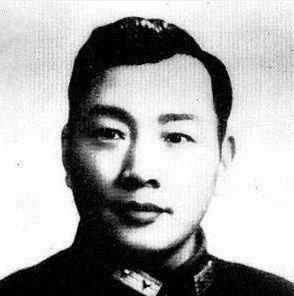After the Liberation War was fought in 1948, the balance of attack and defense quickly shifted, especially after the end of the three major battles, the People's Liberation Army crossed the river in a big way, and the uprising and surrender became the most popular thing in the Nationalist army at that time. At the beginning of the war in 1946, the number of national troops was as high as 4.3 million, and our army was only 1.3 million people, and after less than 3 years of fighting, the forces of both sides were completely reversed, the national army only had 1 million people left, and our army had more than 4 million soldiers. However, in the second half of 1949, when the war was going on, not all the generals of the Nationalist army were busy surrendering to our army, and the most distinctive one of them should be General Song Xilian.

Song Xilian was different from many people who joined the army in his early years, his family was very solid, he developed the ability to learn and think from an early age, and in 1924 he became one of the first cadets of the Whampoa Military Academy. Due to his early achievements in the Northern Expedition, Song Xilian was promoted quickly in the Central Army. It is worth mentioning that he was one of the first generals of the Nationalist Army to participate in the War of Resistance, as early as 1932, shortly after the September 18 incident, Song Xilian, who was still a brigade commander, led his subordinates to Shanghai to resist the Japanese landing and struck at the invaders. Such a resume is rare among the famous generals of the Nationalist Army, because most of the well-known Nationalist generals began to resist Japan in the process of 800,000 troops going to the front line of the Battle of Songhu after the outbreak of the All-out War of Resistance in 1937.
Song Xilian's highest moment in the War of Resistance Against Japanese Aggression was in 1944, when the Chinese army continuously attacked the Japanese army in Burma and Yunnan, and Song Xilian, who had been promoted to commander-in-chief of the 11th Group Army at that time, was wise and courageous, commanded properly, led the troops to fiercely attack the Japanese army at the border, annihilated more than 10,000 enemies, and saved China's southwest communication line, that is, the main international material support line at that time, and made great contributions, so far Song Xilian was already a veritable anti-Japanese general. However, such a Song Xilian, who could fight and could fight, could not resist the historical trend in the Liberation War until 1949, when most of the country had been liberated, and Song Xilian, who was the director of the Suijing Office of the Sichuan-Xiang'e Border Region, had 280,000 Kuomintang troops under his command, although there were a large number of them, but under the general trend of liberation, they were already manpower trying to protect themselves, and the army was scattered and vulnerable. At this time, Jiang, who had a very limited military level, was still desperately trying to pressure him, sending a telegram to blind command, and asking his son to go to the front twice to supervise Song Xilian. Song Xilian was furious and couldn't tolerate Jiang at all. But he did not consider surrendering to our army at all, but made a decision that was different from everyone else's, and this decision was unbelievable.
Song Xilian summoned all his cronies and told everyone, "Jiang has been talking emptyly all his life and has fought a lifelong battle, and I have decided to immediately sever all ties with the central government and no longer obey the command of the Ministry of National Defense." But the eldest husband would rather die than surrender, next I will lead the army to attack the west, establish a base to try to make a comeback, willing to follow Song Mou, I should take care of myself, those who do not want to force it, pay severance pay, can make their own arrangements, I wish to cherish. The officers and soldiers present lamented Song Xilian's courage and benevolence, and most of them burst into tears after listening to it and stayed behind to continue to follow him. Of course, the final outcome of this remnant can be imagined, hundreds of thousands of troops of our army, the pursuit of strong troops, in December 1949 in a cave at the mouth of the Dadu River, Song Xilian and his remnants were all captured, during which Time Song Xilian repeatedly tried to draw his gun and commit suicide, but was stopped by his entourage and our soldiers.
In 1959, after ideological reform, Song Xilian returned to society, and later after special approval by the central government, he was allowed to go to the United States to reunite with his five children, and Song Xilian died in the United States in 1993. Song Xilian's ups and downs in his life are legendary enough.
(Picture and text from the Internet, infringement contact deleted)